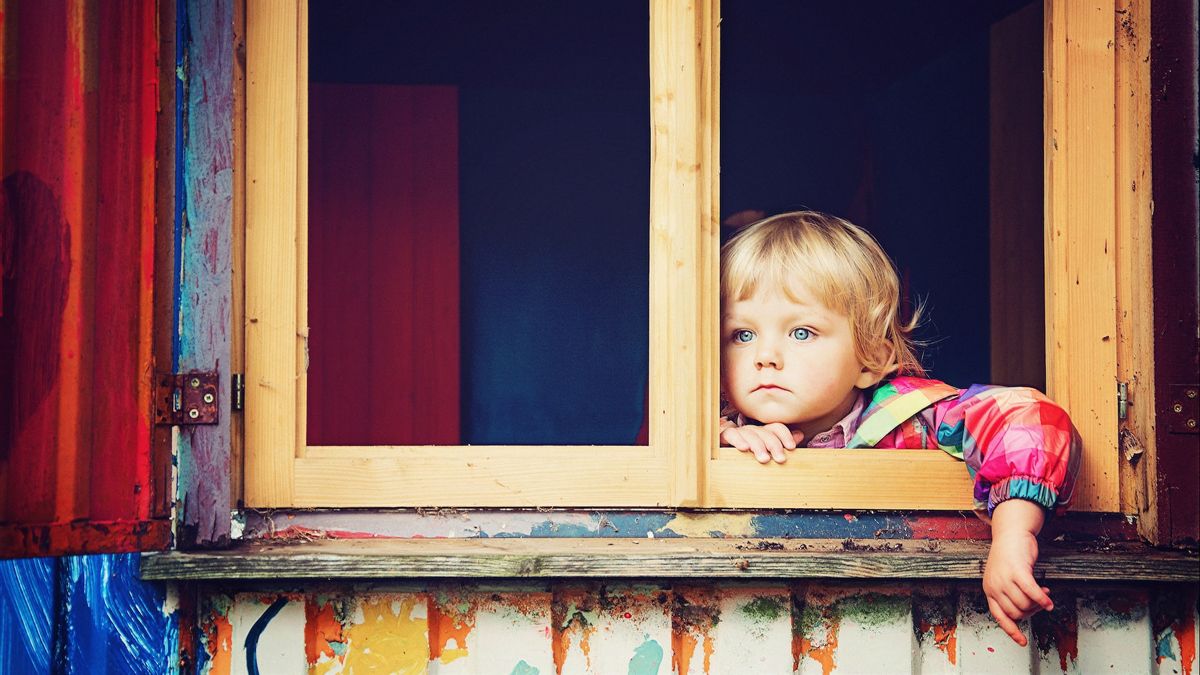YOGYAKARTA - When a child and usually a child change and become aggressive, they can pose serious risks to themselves and others, including their parents and siblings. Is there any way to deal with children's explosive emotions?
It's not uncommon for children who have difficulty dealing with their emotions to lose control and direct their sadness at caregivers, shouting and cursing, throwing dangerous objects, or hitting and biting. This can be a scary and tense experience for you and your child too. Children often feel sorry after they are tired and calm. So what should you do?
It's helpful to first understand that behavior is communication. A child who is so overwhelmed that they hit is a depressed child. They don't have the skills to manage their feelings and express them in a more mature way. They may lack language, or impulse control, or the ability to solve problems.
Sometimes parents see this kind of explosive behavior as manipulative. But children who attack are usually unable to deal with frustration or anger in a more effective way for example, by talking and looking for ways to achieve what they want.
However, how do you react when a child attacks has an effect on whether they will continue to respond to difficulties in the same way, or learn better ways to deal with feelings so they don't get too much. Some hints:
Make sure the area around your child is safe and no one can get hurt if and when your child attacks. Find yourself and your sibling from the area.
Reduce stimulation around them. Turn off the TV, turn off the lights. The idea is to let your child get tired. This step applies to teenagers and children.
Even if emotions are peaking, try to calm yourself down. Talk to your child in a calm tone, even if you want to scream at him.
Tell your child that his behavior is unacceptable and you will talk to him when they are calm.
Good behavior model for your child. Remember, children learn from their parents, which is another reason you want to stay calm. You teach them the right way to manage stressful situations.
If your child screams at you, calls your name, or says that you are the worst parent in the world, don't respond. And don't take it personally. Instead, leave the room or send them to their bedroom.
Also, don't scream back at your child because it will suck you into their anger and make you the center of their anger.
The time to speak is when you and your child are both calm. If they scream in their room, they shouldn't get your attention, period.
Don't worry if you seem to ignore inappropriate behavior. What you do doesn't react to those screams. Or, in other words, you don't let your child's screams control your actions.
Later, when things calm down, and at the time you choose, you can explain to your child that their behavior is unacceptable. Let them know that there is a better way to deal with anger than to lose control. But do it with your terms, not your child. After all, you are the CEO of your household.
You may also ask your child to make up for their mistakes if they violate something or hurt others. If your child is still very small, you may want them to draw what reads, "Sorry." If your child is bigger, ask them to do something more meaningful to the person they have written.
Don't give consequences because your child is angry. On the other hand, it has consequences for your child's inappropriate specific behavior, such as verbal abuse, physical violence, or property destruction.
Your child needs to understand that it's okay to feel angry. We all feel angry from time to time. And sometimes we scream. However, we need to learn to manage ourselves appropriately when we get angry.
In other words, tell your child that anger is normal and there will always be things in life that make them angry. Then emphasize that they are responsible and will be held accountable for all inappropriate behavior caused by their anger.
If one day you feel that your child's behavior goes beyond normal anger, or if you really can't last any longer as a parent, make sure to seek the help of a professional.
I want to emphasize that this behavior does not necessarily mean that your child has mental health problems. "Children's anger is often a normal emotion. But, whenever there is any doubt in your mind, talk to your pediatrician or trusted health care professionals."
Here are a few moments when you have to seek a professional opinion:
Don't blame yourself if you don't handle things the way you wanted when your child lost control in the past. Maybe you scream back or give up when they go berserk or lose patience.
But none of us automatically know how to deal with everything our children do. We make mistakes. We learn."
So, give yourself a break to formulate your anger plan for the next time your child explodes. Be patient and persistent, and you can manage this explosion and restore peace in your home.
So after knowing how to deal with the emotions of children that explode, watch other interesting news on VOI, it's time to revolutionize news!
The English, Chinese, Japanese, Arabic, and French versions are automatically generated by the AI. So there may still be inaccuracies in translating, please always see Indonesian as our main language. (system supported by DigitalSiber.id)









